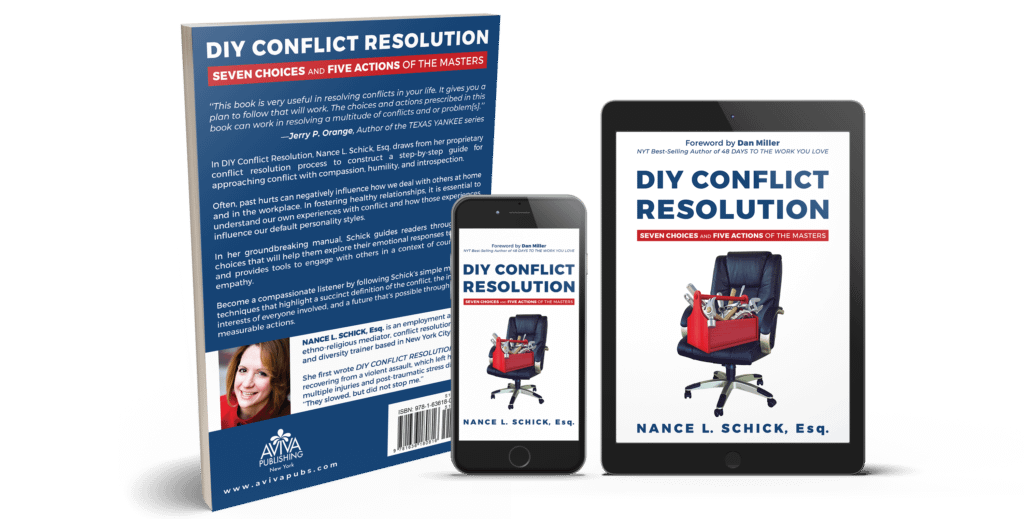Emotionally overwhelmed by the lack of compassionate listening among conflict resolution professionals at an August 2014 discussion of the Israel-Palestine conflict, I walked out. This unexpected response helped me improve my ability to listen with my third ear, beyond misinformation, naivete, and ego. However, since the conflict in Gaza was reignited in October 2023, I have again found myself conflicted and struggling to listen for the hurts I can heal. It seems there are too many that I cannot.
Today, I rediscovered the post I had written in 2014 and found it a helpful reminder of the process I use with others to transform conflict.
The Seven Choices
Even those of us with extensive training and skills in peacemaking sometimes lose access to our tools when our emotions are high, which is why we start with the Seven Choices:
- Forgive yourself for feeling conflicted or engaging in a dispute
- Acknowledge yourself for stepping back to reassess the situation
- Forgive the world for having and creating conflicts
- Free the emotions in ways that do not cause further disruption or infringe upon the rights of others
- Clear your mind of everything you think you know, should have known, etc.
- Assume you know nothing about anything
- Listen with your third ear, or your heart, rather than your fearful brain
Free from the unmet expectations of the past, we can begin to look anew for solutions to the conflicts within our control, or at least our roles in them.
Action One: Define the Conflict
Much like when I walked out of the discussion in 2014, I disagree with many of the purported experts on this conflict who are more focused on placing blame than looking for solutions.
Action Two: Identify the Interests
I still want qualified experts to make the issues clearer for me, so I can make my own decisions about what to do. In 2014, I believed that is what I would get at the discussion. Nearly ten years later, my expectations are lower. I think many people are using this crisis for personal benefit, and I want them to stop. Even if peace in Gaza will take more time, I hope to see the rest of us work toward it in our daily lives.
Action Three: Play with the Possibilities
If conflicts could resolve in any way possible, there would be more discussions that make us a little uncomfortable, yet help us build our skills. We would master conversations that generate long-lasting solutions. In the case of the Israel-Palestine crisis, there would be sustainable peace grounded in freedom from the past and a commitment to a better future for all its inhabitants.
Action Four: Create the Future
The Gaza conflict, involving multiple governments, religious institutions, militaries, and citizens, will not resolve in an evening. But we can’t give up. We can start building momentum toward peace in our own lives by taking small actions each day:
- Listening, even when we’re uncomfortable or disagree with the speakers
- Giving others the benefit of the doubt and hearing their intent, even when they struggle with their words
- Refraining from adding unproductive or uninformed comments
- Looking for something to love about everyone we meet
- Asking more questions and admitting when we don’t understand
Remember, there is no hierarchy of protected classes. In the United States, people of color, Jews, Israelis, and Palestinians all have rights to fair treatment. Let’s continue to learn, grow, and navigate these challenging times together.
Action Five: Stay on PARR
Need practice exploring your emotions?
How to Free Your Emotions at Work without Damaging Your Reputation

